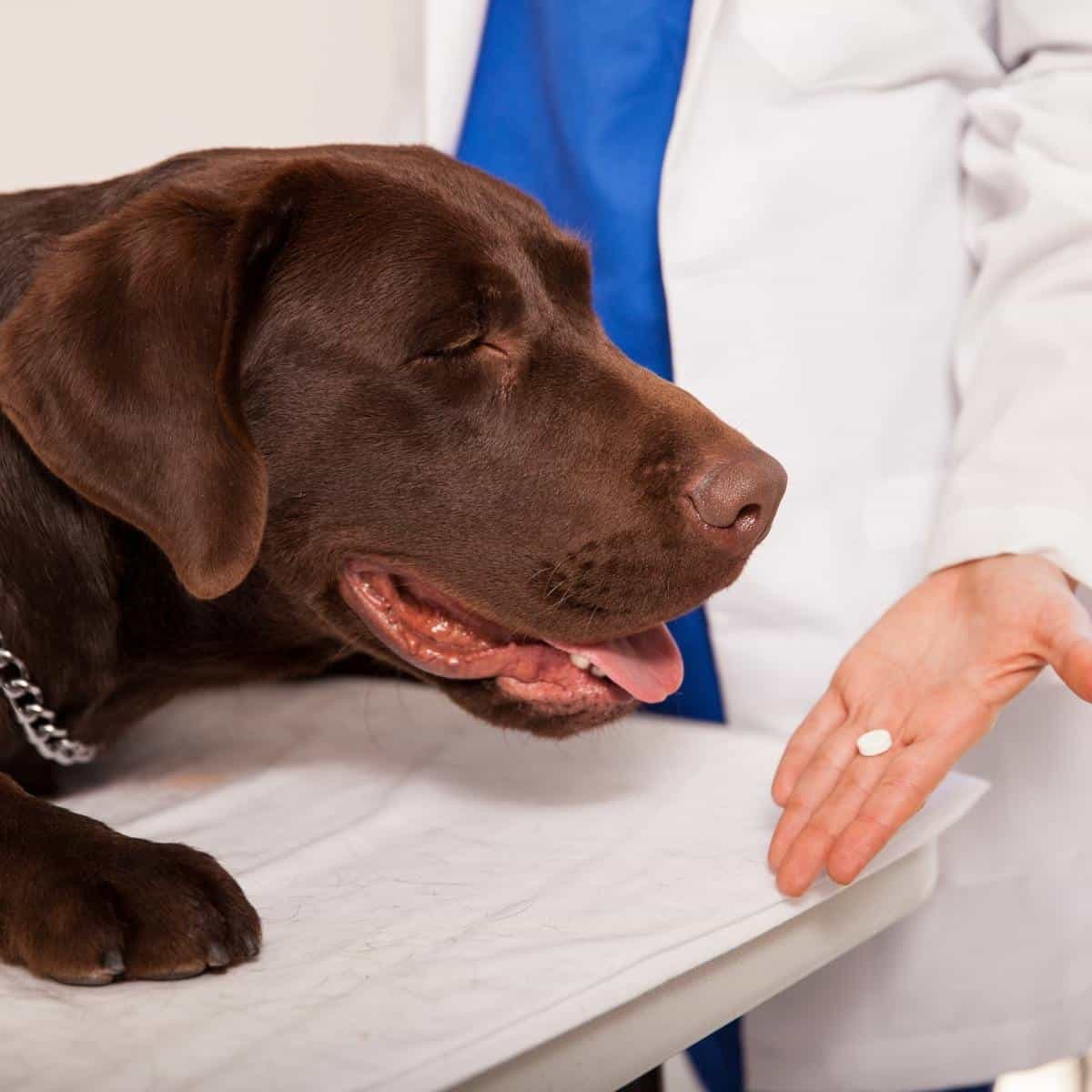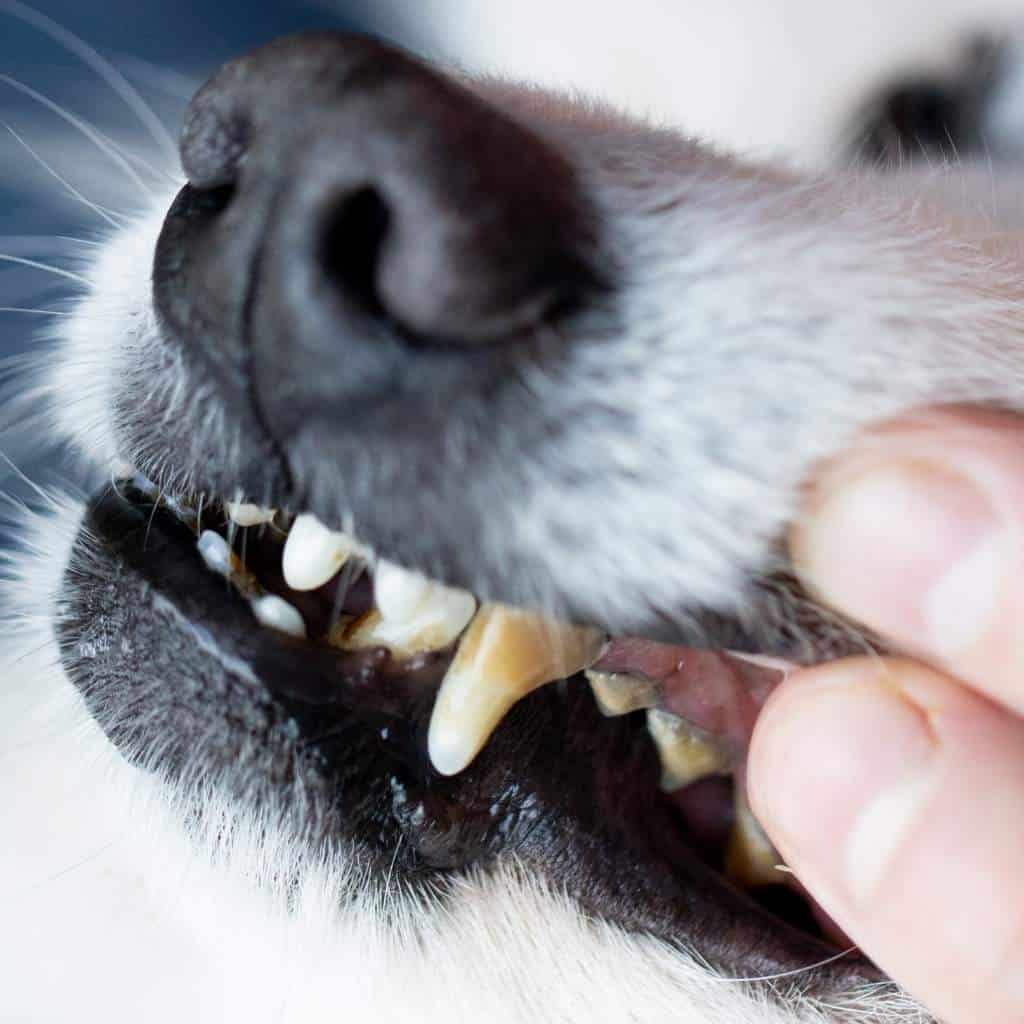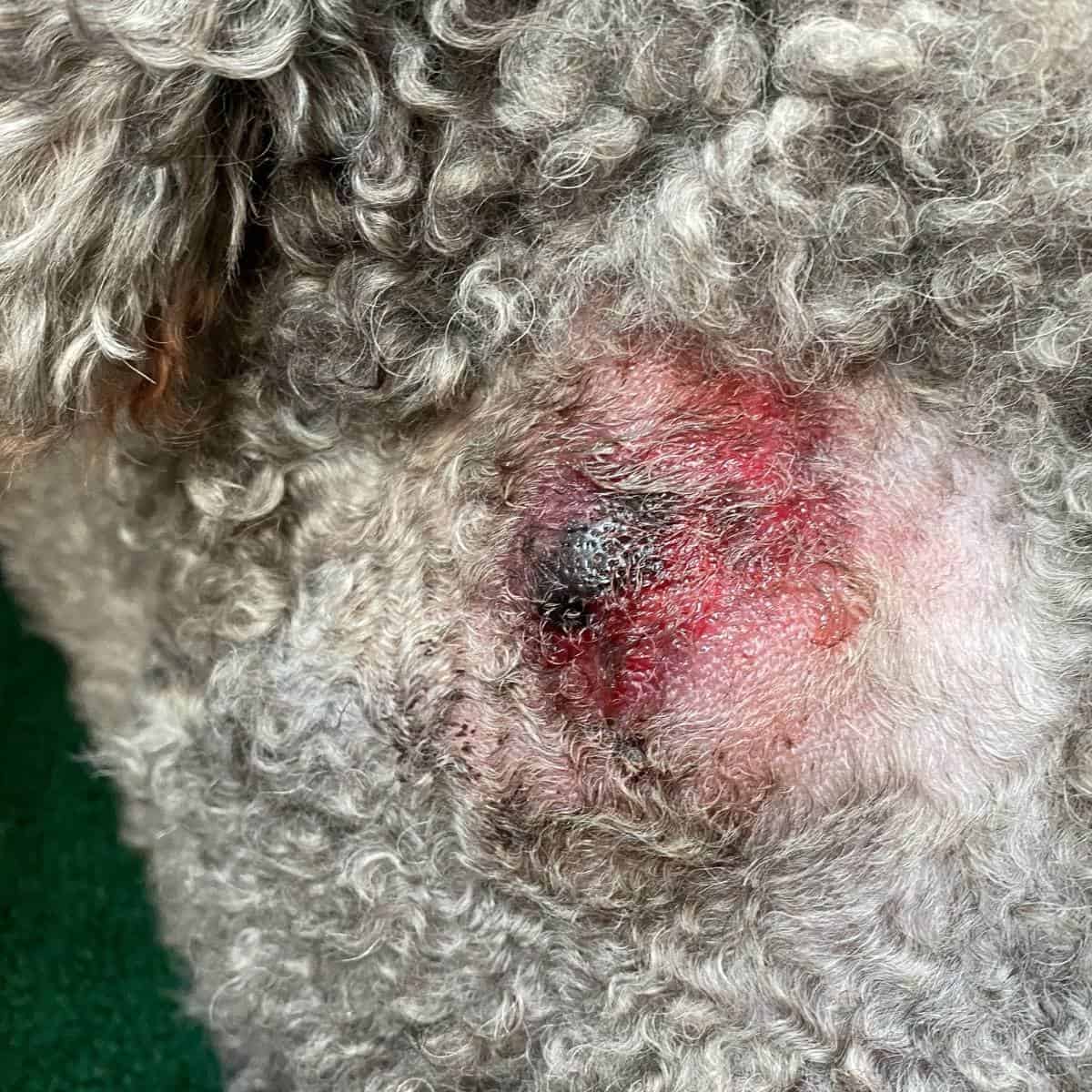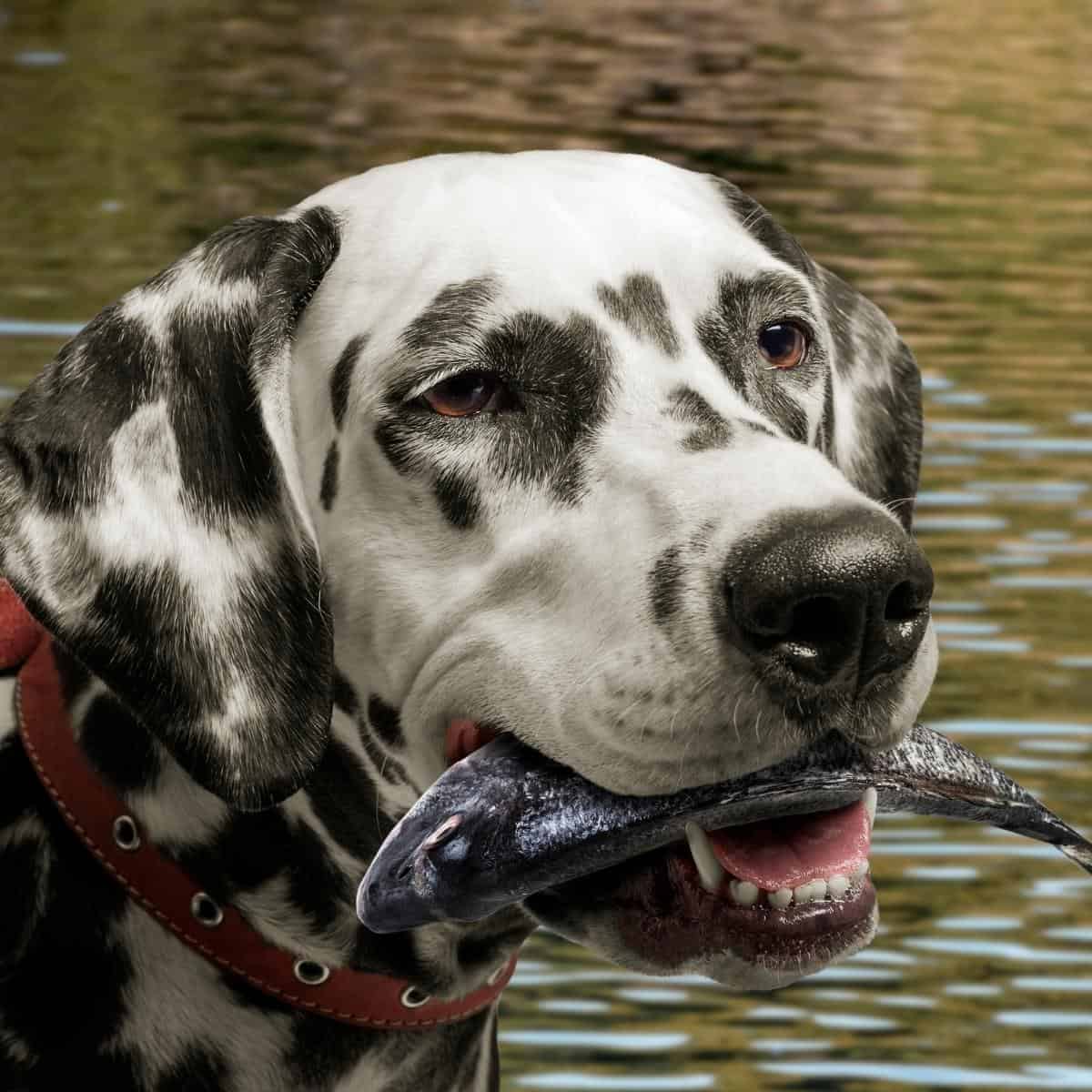Can Dogs Take Hydrocodone? Is it Safe?
When your dog has a respiratory condition, your vet may prescribe hydrocodone. Learn more about the safety, side effects, risks, and when canines should avoid this medicine.
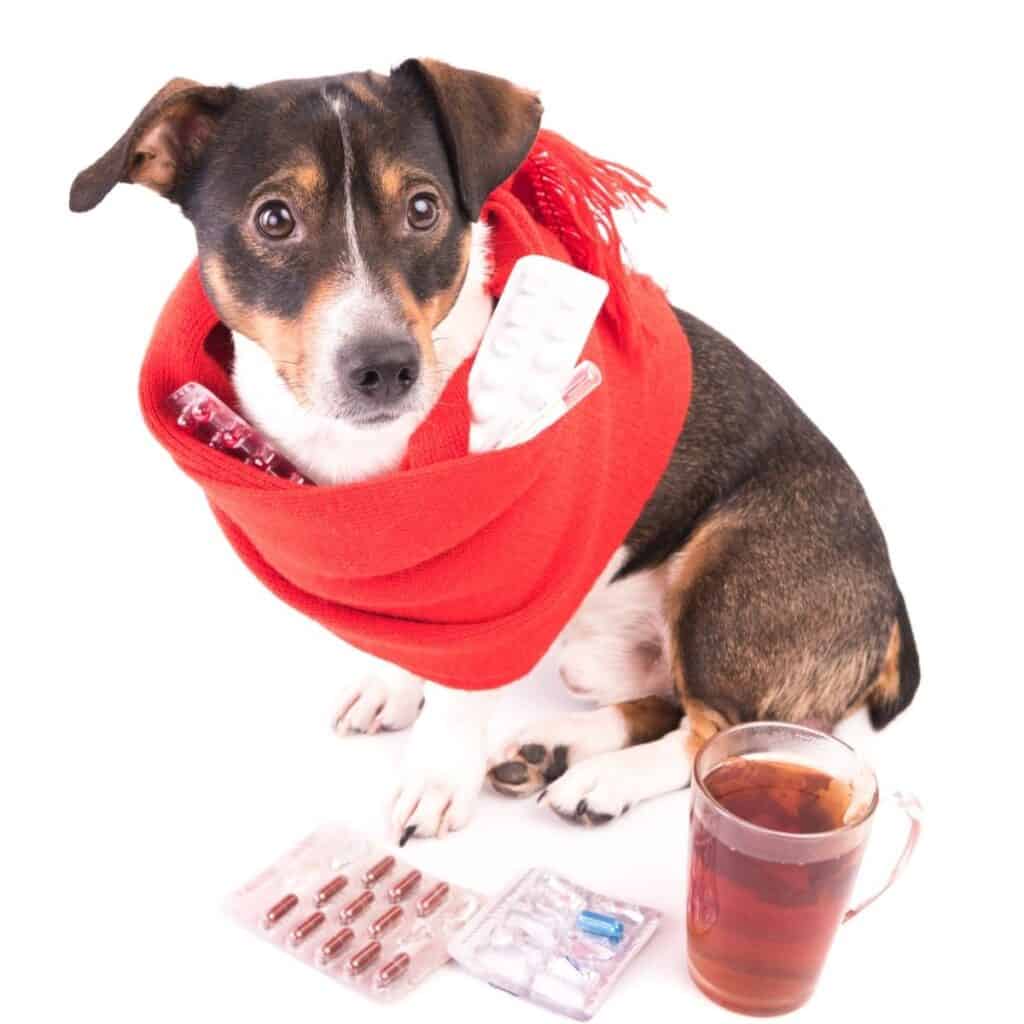
What is Hydrocodone?
Hydrocodone is a high-powered drug ( in the opioid class) that helps dogs who are in pain from injury or illness, excessive coughing (including kennel cough), and other respiratory illnesses. Prescriptions are only available from veterinarians because it is a controlled class III substance by the DEA. However, it’s not technically approved by the FDA to use in animals, even though it can be prescribed for off-label uses.
What makes the formulations different, other than the manufacturer, is the amount of acetaminophen and ibuprofen, and other additives that may be combined.
Because this drug can be extremely addictive, homatropine is added, which also helps with drying out secretions. If one takes too much hydrocodone, they will experience negative side effects from the homatropine that aids in not forming an addiction. This is mainly for when referring to human consumption.
Today we are going to talk about drug interactions, side effects of hydrocodone in dogs, dosages, precautions, and ways to treat respiratory issues naturally.
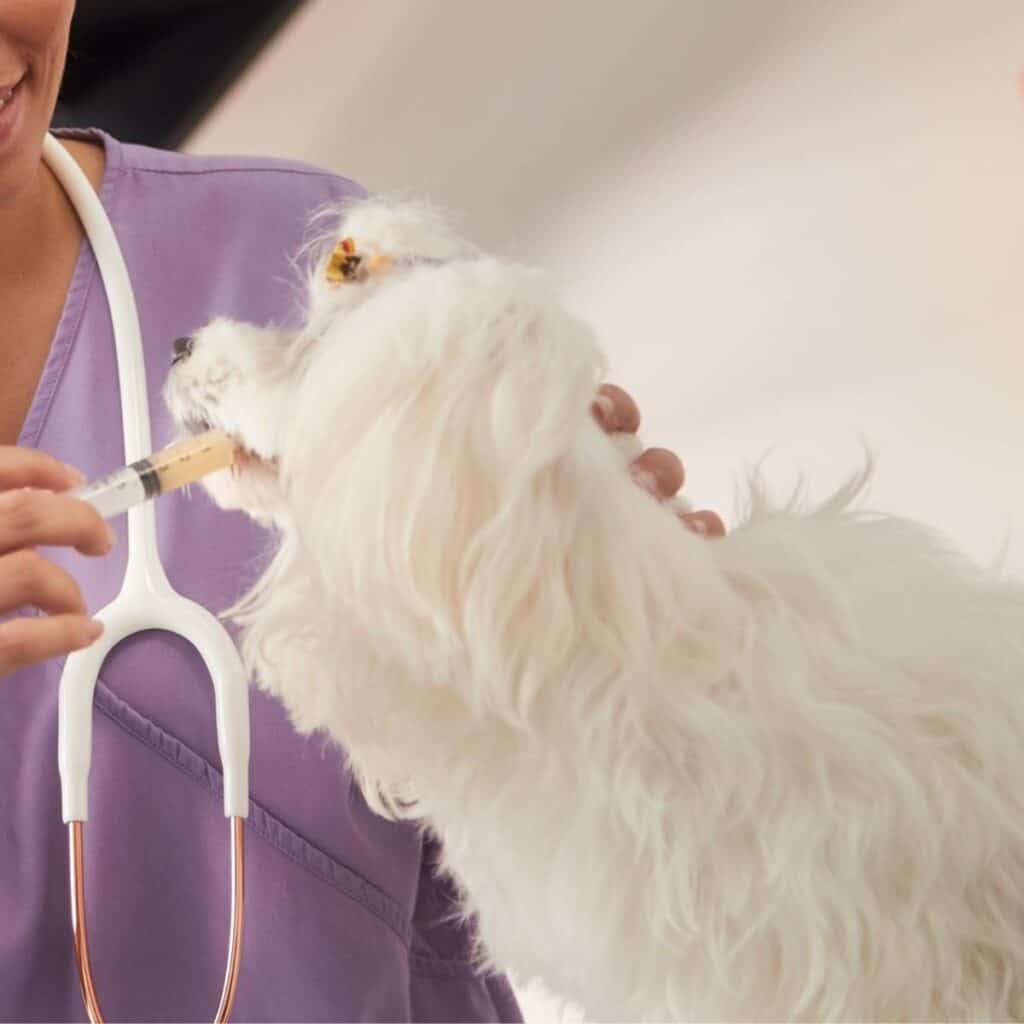
Other Names for Hydrocodone for Dogs
Hydrocodone is the generic drug name, you may recognize trade names such as Tussigon®, Norco®, Lortabs®, Hycodan®, and Vicodin®.
It can be dispensed in oral syrups and tablets depending on the brand, dosage, and reason for prescribing.
Why Hydrocodone Would Be Prescribed to Dogs
Hydrocodone is used in several different ways when it comes to treating canines.
Antitussive
The drug targets receptors in the brain to help reduce excessive coughing allowing your dog to get some rest. This symptom could be due to a variety of factors, but most commonly are kennel cough, bronchial compression (resulting from an enlarged heart), bronchitis, and tracheal collapse.
Sedative
Sometimes it may be given as a sedative to help with pain from other illnesses or injuries. However, this may be a different formulation entirely depending on your vet’s recommendations.
Is Hydrocodone Safe For Dogs?
Hydrocodone is safe for canines when it is prescribed and dispersed properly in the right form and dosage by a licensed veterinarian. You should never administer narcotics to your dog if it wasn’t recommended by a professional. There can be serious side effects and hydrocodone interacts negatively with other drugs and supplements.
Hydrocodone should not be offered to dogs suffering from any of the following conditions;
- Liver issues
- Kidney disease
- Narctoic allergies
- Addison’s disease
- Intracranial pressure or those suffering from a head injury
- Hypothyroidism
Caution should be taken if your dog is pregnant or nursing.
Always store the drug in a cool place at room temperature and away from sunlight. Keep it away from children and household pets at all times.
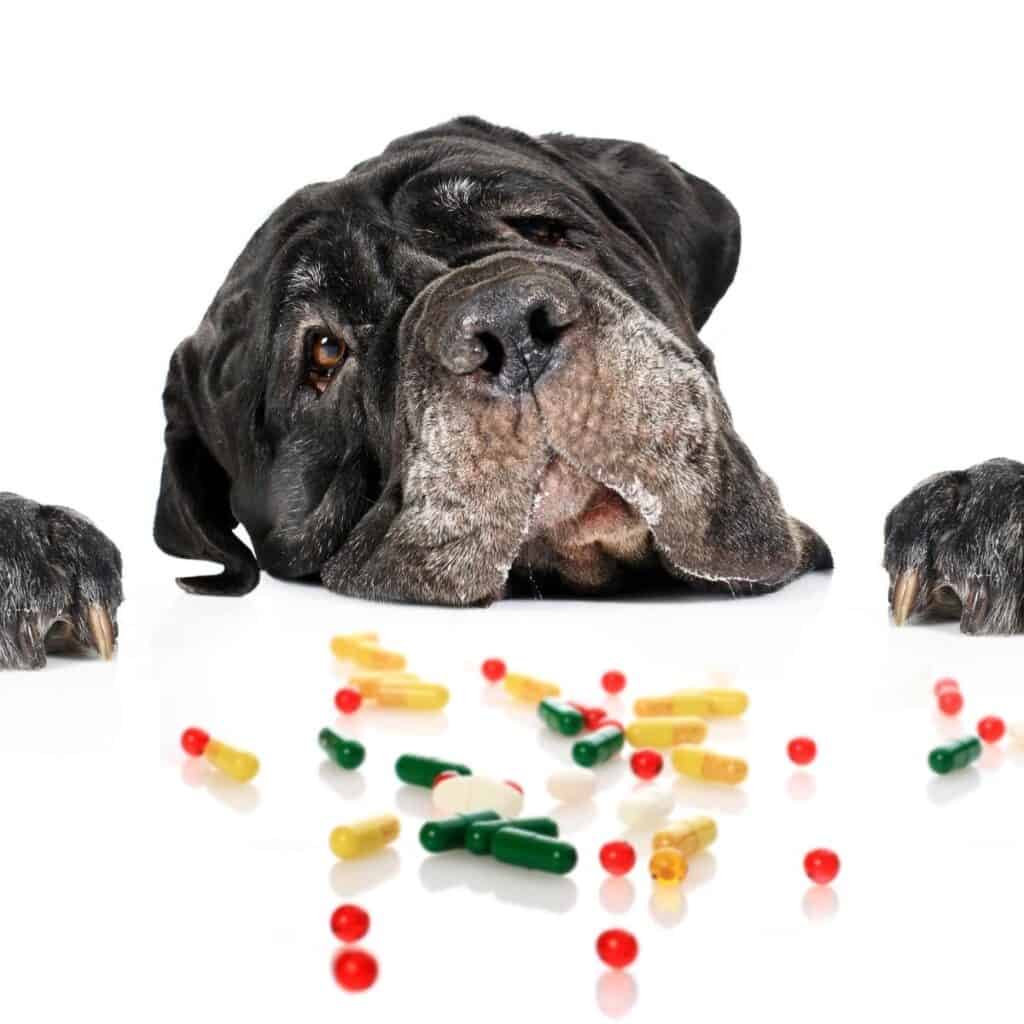
Side Effects of Dogs Taking Hydrocodone
Here are some common side effects that may occur in your dog after taking hydrocodone. While your dog may seem sick, these usually are not fatal effects to worry about. However, it’s the drug interactions that cause the serious symptoms and should be monitored very closely.
- Upset stomach and/or vomiting
- Constipation (when prescribed long term)
- Drowsiness
- Irregular heartbeat
- Loss of appetite
Hydrocodone Interactions: Other Drugs and Supplements
Always follow the instructions that are given by your vet. Be sure to disclose all medications, including supplements that your pup currently takes, because that could change the dosage or may even result in a different prescription altogether.
It’s also important to mention if they are on a special diet, or have restrictive dietary measures.
Here are some common interactions that your vet will caution you about:
- If your dog is taking Anipryl or L-Deprenyl for senility, Cushing’s, anxiety, etc., it’s best to avoid hydrocodone, and most narcotics in general. There have been serious adverse effects reported.
- The hydrocodone dosage will need to be reduced if your pup is already taking other opioids for pain such as butorphanol, buprenorphine, and tramadol or uses tranquilizers like alprazolam and acepromazine or is currently being give antihistamines like Benadryl. Combinations of these drugs can lead to severe sedation and extreme drops in blood pressure.
- You will really need to watch closely if your dog is on any antidepressants, as you may see extreme sedation.
- Diuretics, medications that control stomach issues, and certain blood thinners may not work as well when hydrocodone is being taken at the same time. Your vet may give additional instructions to offset the side effects.
- Be careful if your dog wears a flea and tick collar that contains amitraz, as it is an MAOI, similar to previous drugs listed in this section.
- Hydrocodone should be used with caution in dogs that acidosis.
- Hydrocodone is not a proper treatment option for pneumonia or cases involving toxic diarrhea like puppy parvo. While it may help with stool formation, it can cause a toxic build up in their bodies.
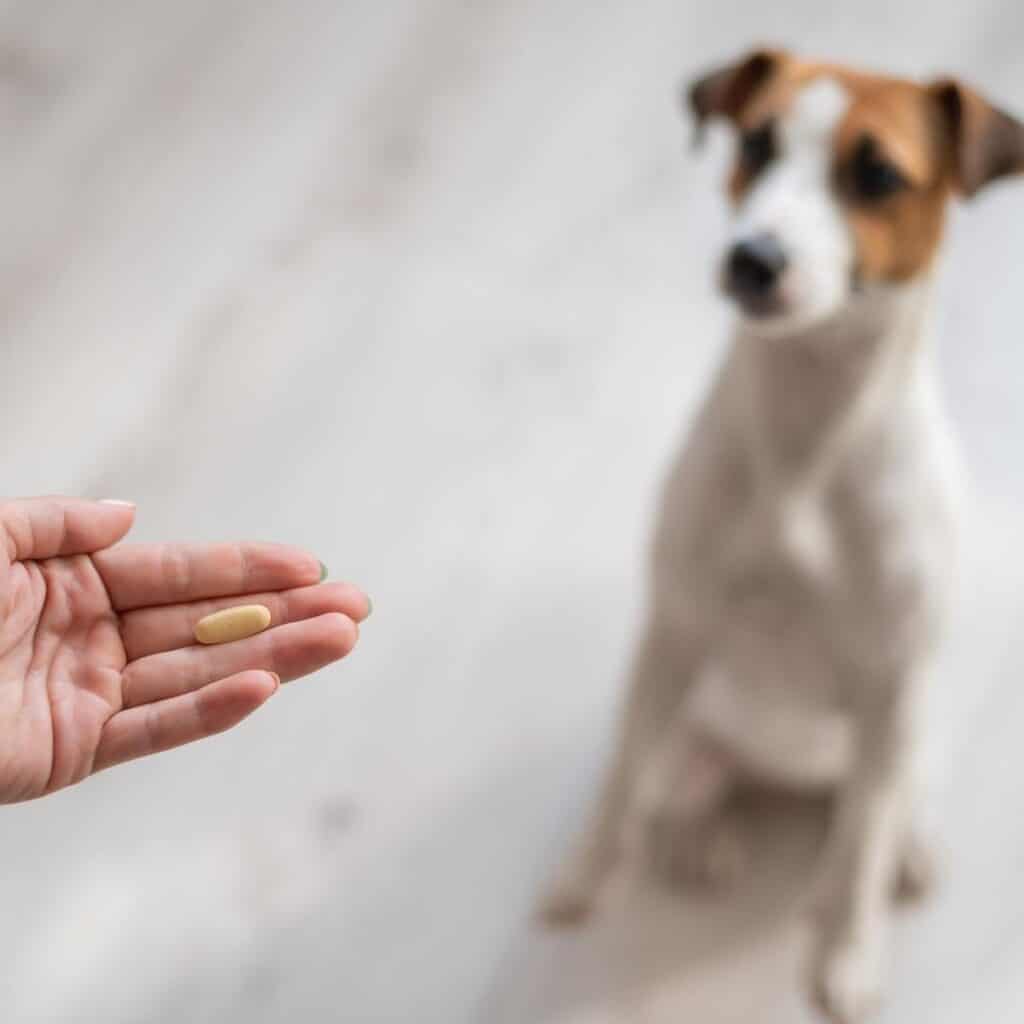
How Much Hydrocodone Can A Dog Take?
As mentioned, hydrocodone is prescribed either as a tablet or in the form of a syrup. There is 5mg of hydrocodone per 1 ml of syrup, and the tablets usually come in 5mg doses as well.
The effects are pretty quick, taking place within the first one or two after it’s been administered. You will want to watch your dog during this time to make sure they aren’t having any side effects. Should you notice anything out of the ordinary you should contact your vet immediately.
After 5 days of taking hydrocodone, if your pup is still showing symptoms of coughing, report back to your vet for additional advice and recommendations.
Most of the time you can give your dog the medicine up to 4 times per day, which usually lasts 6 to 12 hours.
What should I do if I skip a dose?
Don’t double up on doses. Instead, wait until the next scheduled time. Be sure to record the schedule somewhere along with side effects if there should be any. The medication works best when it’s given in the correct intervals.
What do I do if my dog overdoses on hydrocodone?
If you think your dog is overdosing on hydrocodone or ingested it by accident, call your vet immediately for their instructions.
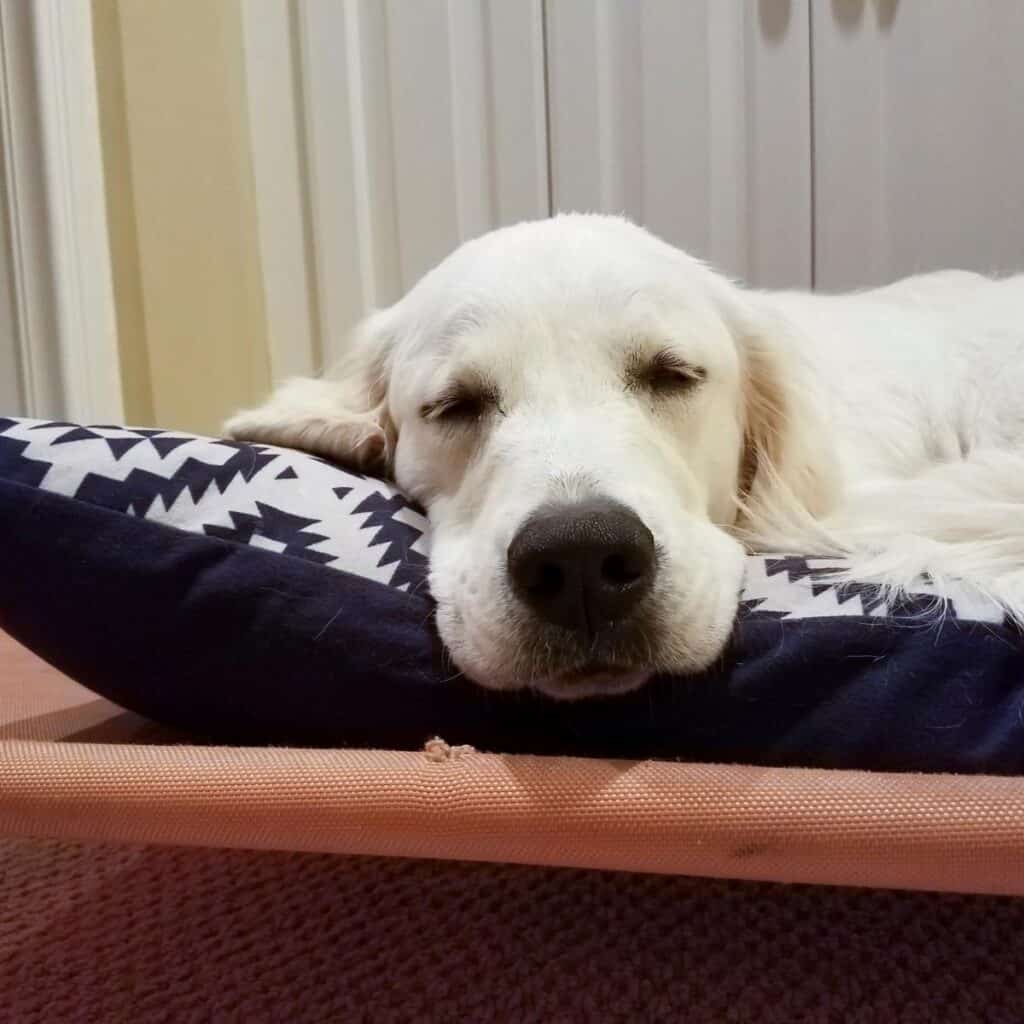
Natural Remedies for Treating Kennel Cough in Dogs
If you are hesitant about giving your dog narcotics, holistic vets may recommend some natural home remedies such as the ones below. There may also be OTC options such as Mucinex, depending on your dog’s condition. While it’s up to you how you want to proceed with treatment, you should always ask your vet first, as they know more about your dog’s medical record, if there are any contraindications, and can provide their best advice.
Honey
Add a tablespoon of honey to some warm water to help ease the coughing and soothe their throat. However, honey should not be given to puppies, as it may contain botulism.
Steam and Humidifiers
Let your pup stay in the bathroom with you as you take a shower. The steam helps to fight the irritation that kennel cough can cause. You can also use a humidifier while they rest.
Rest
We all know when we are feeling down rest can be the best medicine. Remember to limit their activity during this time so they don’t get overexerted.
Hydrate
Purchase low-sodium broth meant for dogs or make some chicken soup at home. Additionally, let your dog drink plenty of water when they are suffering from a cold. Hydration will go a long way in alleviating the symptoms. You can also give them natural bone broth, and even a little Pedialyte if needed.
Aromatherapy (Essential Oils)
Ask your veterinarian about essential oils. They may recommend peppermint oil, lavender, and eucalyptus oil. All of these essential oils may benefit your dog even when they are just under the weather. They are said to have calming and anti-inflammatory properties.
Final thoughts
Hydrocodone is often prescribed to treat respiratory issues in dogs, including kennel cough. Take your vet’s advice when it comes to dosage and be sure they are aware of all of your dog’s medical conditions and current medications and supplements.
If your dog ingests hydrocodone on accident contact your vet immediately and watch for adverse side effects.

